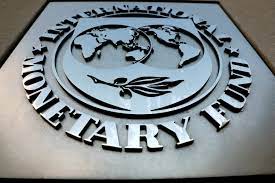

Ghana is set to receive its second tranche of the financial bailout by the International Monetary Fund. The IMF disclosed that “All quantitative performance criteria for the first review and almost all indicative targets and structural benchmarks were met” by Ghana hence the need for the subsequent disbursement…
The International Monetary Fund’s board has authorized a first review of Ghana’s loan programme on Friday, paving the way for the immediate distribution of approximately $600 million under its $3 billion bailout programme.
The decision follows an agreement to restructure $5.4 billion in loans with its official creditors, a critical step toward receiving the second tranche of IMF funding.
The International Monetary Fund explained in a statement that “all quantitative performance criteria for the first review and almost all indicative targets and structural benchmarks were met.”
The Fund added that Ghana’s reform moves have yielded positive results, including improved growth, decreased inflation, and increased international reserves, while predicting that the economy would grow 2.3% in 2023 and 2.8% in 2024.
Ghana has been struggling with its biggest economic crisis in a decade, which came amid soaring public debt-servicing costs.
In 2023, the oil, cocoa, and gold producers secured a bailout program with the International Monetary Fund (IMF) worth $3 billion as part of efforts to ease the raging economic troubles.
The forthcoming presidential election in Ghana is expected to be a tight race as candidates are expected to campaign along socio-economic lines to drive support ahead of the poll by the end of 2024.
more recommended stories
 New Director Appointed: Burao Hospital’s Fall and the Fight for Revival
New Director Appointed: Burao Hospital’s Fall and the Fight for RevivalBurao Hospital begins a new chapter.
 Somaliland: While Mogadishu Burns, Somalia Seeks Chaos in Sool
Somaliland: While Mogadishu Burns, Somalia Seeks Chaos in SoolHargeisa, April 9, 2025 – (Somaliland.com).
 Somaliland Presidency Delivers 10 Vital Dialysis Machines to Hargeisa Group Hospital
Somaliland Presidency Delivers 10 Vital Dialysis Machines to Hargeisa Group HospitalHargeisa – Somaliland – The President.
 Electricity Without Accountability: Public Outrage Grows in Burao Electricity Debate
Electricity Without Accountability: Public Outrage Grows in Burao Electricity DebateHigh electricity costs in Burao have.

